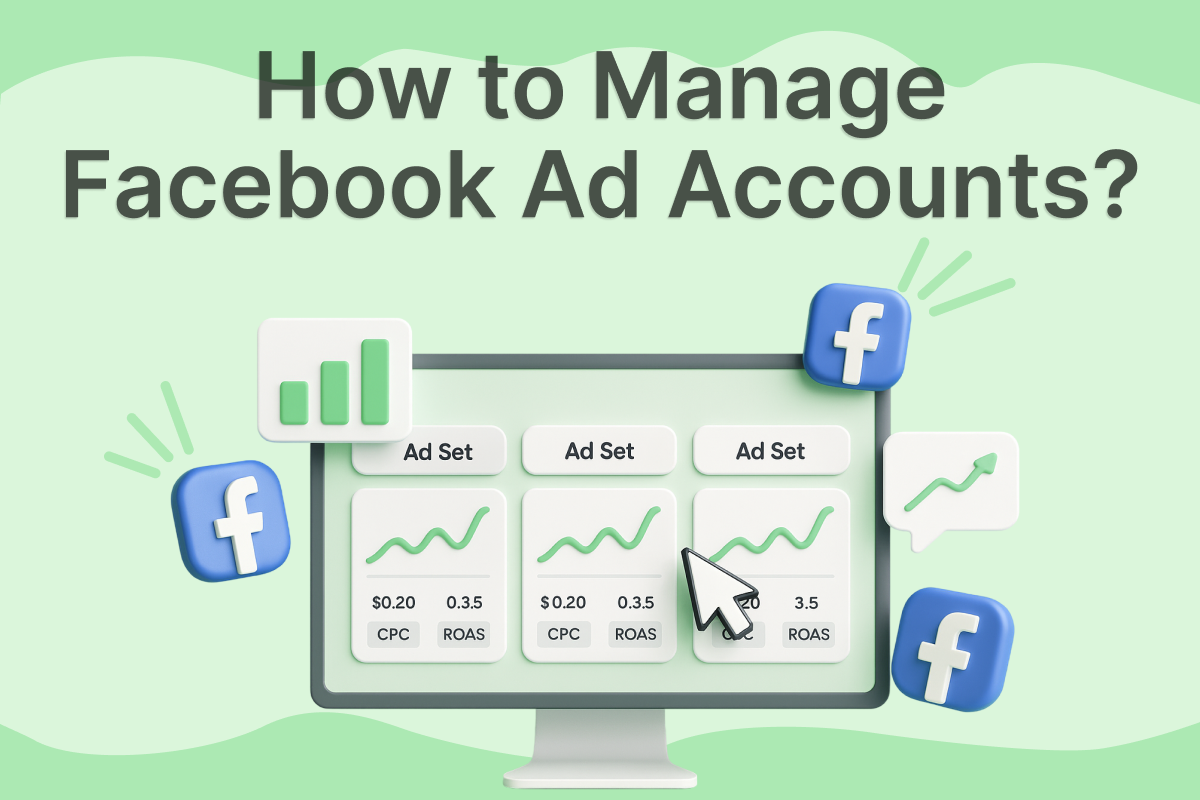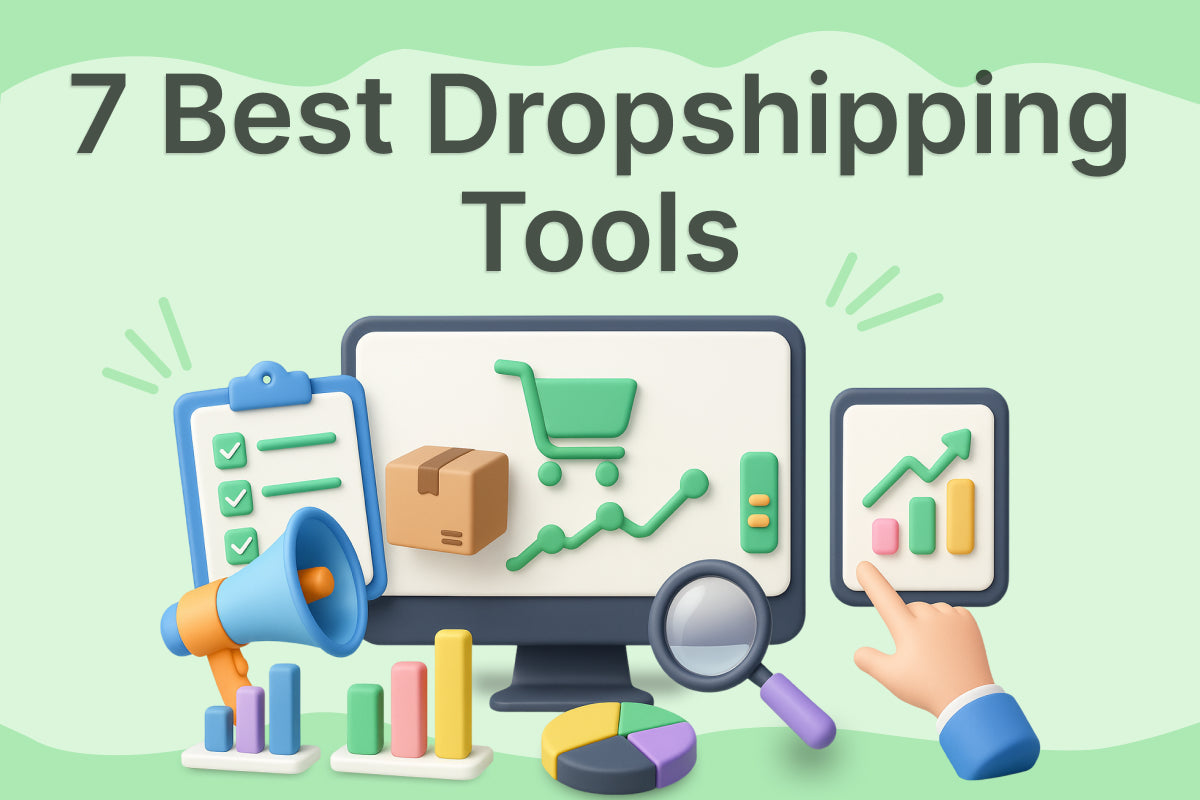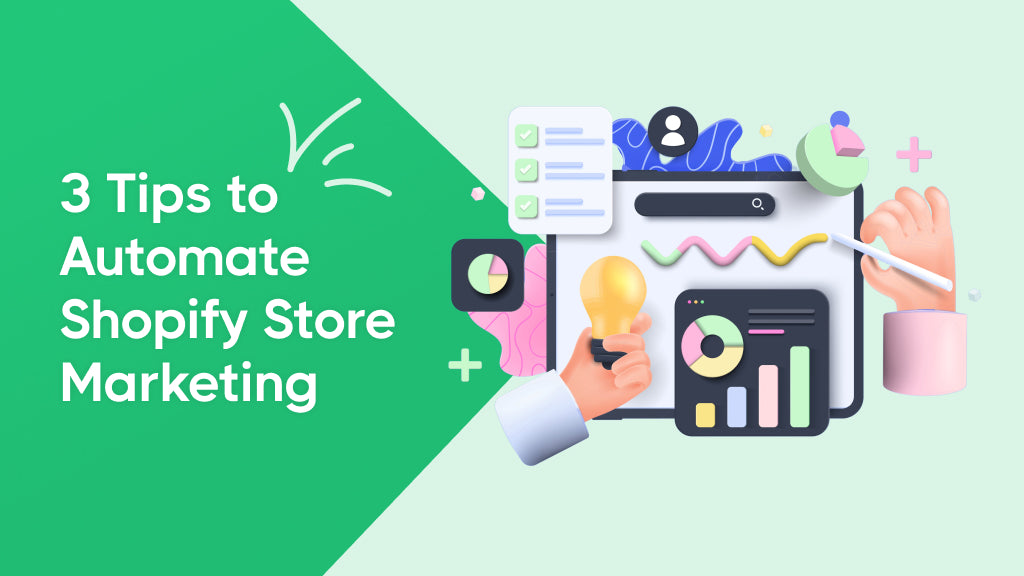Dropshipping now isn’t what it used to be. Rising ad costs, smarter customers, and tougher competition mean you need more than just a Shopify store and a supplier. The modern dropshipper needs data-driven tools to uncover winning products, reliable fulfillment partners for fast shipping, and automation to reduce manual work.
The good news? There’s now a wide range of platforms designed to help you do just that. From competitor spying to fulfillment automation, these tools can help you cut costs, scale faster, and stay ahead of trends. Below are the 7 best dropshipping tools in 2025, starting with the one that’s leading the pack: Dropship.IO.
1. Dropship.io: Our Top Pick

Dropship.IO has become the go-to tool for data-driven dropshippers. Unlike older platforms that only show you what suppliers have in stock, Dropship.IO lets you see what products are actually selling in other dropshipping stores. You get access to revenue estimates, units sold, and growth trends, allowing you to make smarter choices about which products to test.
Beyond product discovery, Dropship.IO gives you powerful insights into competitor strategies. You can check what apps other stores are using, how they run ads on TikTok and Facebook, and what suppliers they rely on. The tool even includes ad spying features so you can see what creative angles are driving engagement in your niche.
This combination of real sales data plus marketing intelligence sets Dropship.IO apart from many other platforms, making it especially useful for dropshippers who want to minimize risk and move fast in trend-driven categories.
Key Features
-
Product Database with advanced filters (units sold, revenue, ratings)
-
Competitor research including apps, suppliers, and ad strategies
-
Ad-Spot for TikTok and Facebook ad discovery
-
Trend forecasting tools to spot demand shifts early
-
Store tracking and benchmarking
Pros
-
Real sales insights reduce risk when picking products
-
Combines product research and ad research in one place
-
Helps uncover competitors’ best suppliers and tools
-
Easy-to-use chrome extension for product research
-
Curated list of winning products
-
Market insights and analytics
Cons
-
Limited availability of advanced filters on lower plans
2. AutoDS

AutoDS is built for dropshippers who want to automate as much of the business as possible. Managing hundreds of SKUs, monitoring stock and price changes, and manually fulfilling orders can quickly become overwhelming. AutoDS solves these bottlenecks by handling repetitive tasks automatically, letting you scale without burning out.
The platform supports multiple suppliers, including AliExpress, Amazon, and private vendors, and works across Shopify, WooCommerce, and eBay. Its automated order fulfillment system means once a customer places an order, the tool can buy the item from the supplier, upload tracking details, and update your store, all without manual intervention.
For anyone running multiple stores or selling at volume, AutoDS is an efficiency multiplier.
Key Features
-
Automated order fulfillment and tracking
-
Stock and price monitoring with dynamic pricing rules
-
Multi-store, multi-supplier support
-
Bulk product imports with one-click setup
Pros
-
Saves huge amounts of time by automating repetitive work
-
Works well across multiple platforms and suppliers
-
Great for scaling once you hit higher SKU counts
Cons
-
Steep learning curve for beginners
-
Pricing scales up quickly as order volume increases
-
Some bugs in order tracking
3. Spocket

Spocket addresses one of the biggest dropshipping pain points: slow shipping from Asia. Customers expect delivery in under a week, and long wait times lead to refunds and bad reviews. Spocket solves this by connecting store owners to vetted suppliers in the US, EU, and other fast-fulfillment regions.
The tool also allows for branded invoicing, making it easier to build trust with customers who want to feel like they’re buying from a legitimate store instead of a generic reseller. It integrates with major platforms like Shopify, WooCommerce, and Wix, making it flexible for different business setups.
For store owners who prioritize brand perception and customer satisfaction, Spocket is a must-have.
Key Features
-
US/EU supplier marketplace
-
Faster regional shipping compared to AliExpress
-
Branded invoicing options
-
Sample order requests for quality assurance
Pros
-
Significantly faster delivery times
-
Improves brand image with higher-quality suppliers
-
Easy integration with popular ecommerce platforms
Cons
-
Higher product costs compared to Asia-based suppliers
-
Premium supplier options locked behind higher plans
4. SaleHoo

SaleHoo has been around for years, but in 2025 it’s still one of the most trusted tools for dropshippers looking for reliable suppliers. Instead of sifting through thousands of unvetted vendors, SaleHoo gives you access to a curated supplier directory. Each supplier is verified, which reduces the risk of scams or poor product quality.
In addition to supplier access, SaleHoo provides a Market Research Lab that helps you discover profitable niches and trending products. This makes it a great tool not just for finding vendors, but also for validating ideas before you invest time and ad spend.
Key Features
-
Vetted global supplier directory
-
Market Research Lab for product and niche validation
-
Training resources and community support
Pros
-
Reduces supplier risks with verification process
-
Helps identify niches with demand before you launch
-
Strong educational resources for beginners
Cons
-
Limited automation features compared to newer tools
-
Directory access is subscription-based, adding ongoing cost
5. DSers

For dropshippers still relying heavily on AliExpress suppliers, DSers is one of the most effective tools. It replaced Oberlo as the default Shopify integration for AliExpress, and it offers everything from bulk order placement to supplier mapping and order splitting.
If you’re running a store with hundreds of AliExpress SKUs, DSers can save hours of manual work by handling fulfillment and syncing inventory automatically. It’s also built with Shopify in mind, ensuring smooth operations for ecommerce brands on that platform.
Key Features
-
Bulk order processing from AliExpress
-
Supplier mapping and order splitting
-
Inventory syncing with real-time updates
-
Tiered pricing to scale with your store
Pros
-
Streamlines AliExpress dropshipping
-
Bulk features save time for high SKU stores
-
Affordable entry plans
Cons
-
Still limited by AliExpress shipping times
-
Quality control depends on chosen suppliers
6. Zendrop

Zendrop is popular among dropshippers who want to take their store beyond generic products. It offers not only fast shipping but also custom packaging, private labeling, and branding options. For businesses trying to differentiate themselves in a crowded market, these features can make a huge difference.
Zendrop also has a focus on US fulfillment centers, which reduces delivery times and improves customer satisfaction. It integrates with Shopify and WooCommerce, making it accessible to most ecommerce stores.
Key Features
-
US fulfillment with faster delivery times
-
Custom packaging and private labeling options
-
Automated order fulfillment and tracking
Pros
-
Helps build a stronger, branded store identity
-
Faster delivery improves customer loyalty
-
Easy Shopify integration
Cons
-
Higher per-unit costs for custom packaging
-
Limited product range compared to larger suppliers
7. Sell The Trend

Sell The Trend combines product discovery with ad trend insights, making it a strong tool for finding what’s hot right now. It aggregates data from Shopify stores, marketplaces, and social platforms to highlight trending items before they hit saturation.
What makes it stand out is the creative intelligence side—you can see how competitors are marketing these products, giving you inspiration for your own ads. For dropshippers who move quickly on trends and want to reduce guesswork, this tool provides both data and marketing insights.
Key Features
-
Trend discovery across ecommerce and social platforms
-
Competitor ad spying tools
-
Niche filtering to find untapped categories
Pros
-
Great for catching trends early
-
Ad spying gives creative direction
-
Easy to combine with other research tools
Cons
-
Trend data can lag behind in fast-moving niches
-
Works best for short-term trend stores, less so for evergreen
How to Choose the Best Dropshipping Tool
With so many tools available, the right choice depends on your store’s stage, strategy, and goals. Here’s what to consider before committing:
Match Tools to Your Business Model
If your focus is fast shipping and quality control, platforms like Spocket or Zendrop are essential. If you’re running a trend-driven store, then tools like Dropship.IO or Sell The Trend give you the insights needed to act quickly. For those still scaling with AliExpress, DSers is the most practical solution.
Balance Automation with Control
Automation saves time, but it also reduces visibility into day-to-day operations. Tools like AutoDS are perfect for large catalogs but may feel like overkill for smaller stores. Think about whether you want complete automation or prefer manual control over key steps like fulfillment.
Supplier Reliability and Shipping Speed
Your customer experience depends on fulfillment. Vet whether the tool’s suppliers consistently deliver fast and reliable service. In 2025, customers expect Amazon-like delivery standards, and tools like Spocket and Zendrop give you a competitive edge.
Data Accuracy and Market Insights
Product research platforms are only as good as their data. Tools like Dropship.IO stand out because they use real sales numbers, not just listing data. Always validate product insights across multiple tools or marketplaces before investing in ads.
Cost vs ROI
While some tools are affordable, others come with steep monthly fees. The right choice depends on whether the savings in time and improvements in conversion offset the cost. For example, Dropship.IO may look expensive at first, but if it helps you pick winning products faster, it pays for itself quickly.
Integration and Scalability
Make sure the tool integrates with your ecommerce platform and payment systems. As you scale, you’ll need tools that can grow with you rather than forcing you to switch later.
Conclusion
The dropshipping market in 2025 rewards businesses that use the right mix of tools. Dropship.IO leads the way by combining real sales data with competitor intelligence, making it the top choice for data-driven product research. AutoDS helps automate operations, Spocket and Zendrop improve fulfillment speed and branding, while SaleHoo, DSers, and Sell The Trend each provide targeted advantages for suppliers, fulfillment, and trend discovery.
The key is not using every tool at once, but choosing the ones that best address your bottlenecks. Whether you need better products, faster shipping, or fewer manual tasks, the right dropshipping tools will help you grow sustainably and profitably.
 24 HOURS DELIVERY
24 HOURS DELIVERY





